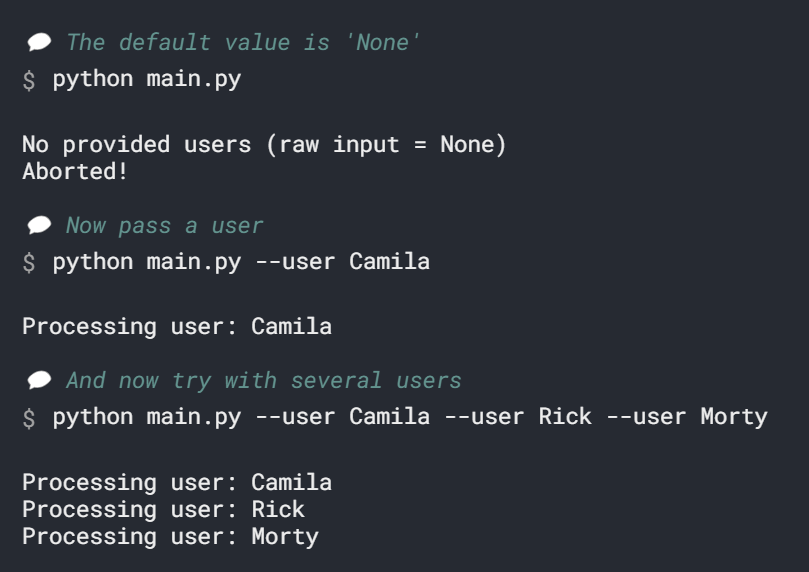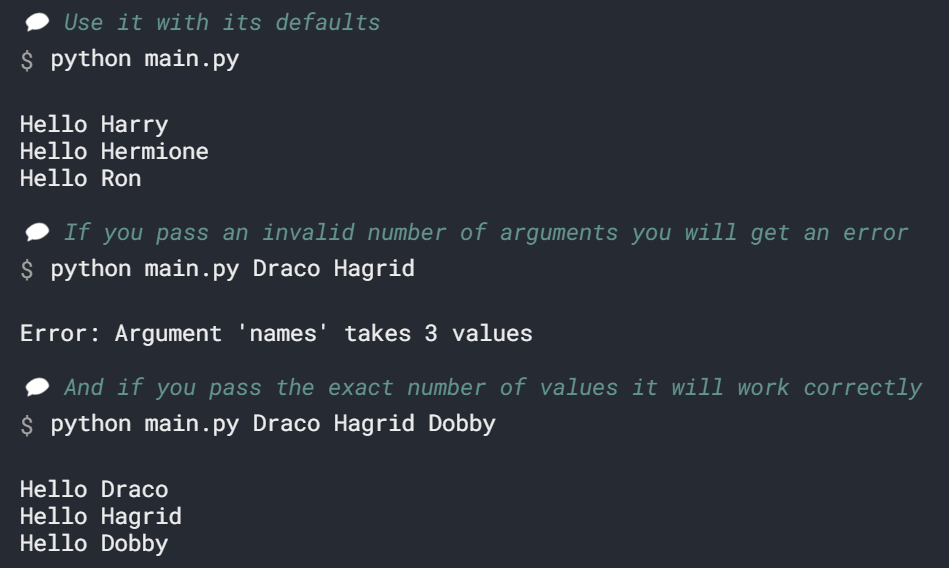多值参数
Multiple CLI Options
可以为 CLI Option 定义为允许多次调用,获取所有调用值的形式
from typing import List, Optional
import typer
from typing_extensions import Annotated
def main(user: Annotated[Optional[List[str]], typer.Option()] = None):
if not user:
print(f"No provided users (raw input = {user})")
raise typer.Abort()
for u in user:
print(f"Processing user: {u}")
if __name__ == "__main__":
typer.run(main)

自定义值的数量和类型
可以把 CLI Options 定义成多值的同时,定义值的不同类型
from typing import Tuple
import typer
from typing_extensions import Annotated
def main(user: Annotated[Tuple[str, int, bool], typer.Option()] = (None, None, None)):
username, coins, is_wizard = user
if not username:
print("No user provided")
raise typer.Abort()
print(f"The username {username} has {coins} coins")
if is_wizard:
print("And this user is a wizard!")
if __name__ == "__main__":
typer.run(main)
Each of the internal types defines the type of each value in the tuple.
user: Tuple[str, int, bool]
意味着 user 参数包含三个不同类型的值(按顺序)
- The first value is a
str. - The second value is an
int. - The third value is a
bool.
Later we do:
username, coins, is_wizard = user
is equivalent to this:
username = user[0]
coins = user[1]
is_wizard = user[2]

CLI Arguments with Multiple Values
CLI Arguments 也可以是多值的
from pathlib import Path
from typing import List
import typer
def main(files: List[Path], celebration: str):
for path in files:
if path.is_file():
print(f"This file exists: {path.name}")
print(celebration)
if __name__ == "__main__":
typer.run(main)

We also declared a final CLI argument celebration, and it's correctly used even if we pass an arbitrary number of files first.
自定义值的数量和类型
from typing import Tuple
import typer
from typing_extensions import Annotated
def main(
names: Annotated[
Tuple[str, str, str], typer.Argument(help="Select 3 characters to play with")
] = ("Harry", "Hermione", "Ron"),
):
for name in names:
print(f"Hello {name}")
if __name__ == "__main__":
typer.run(main)
